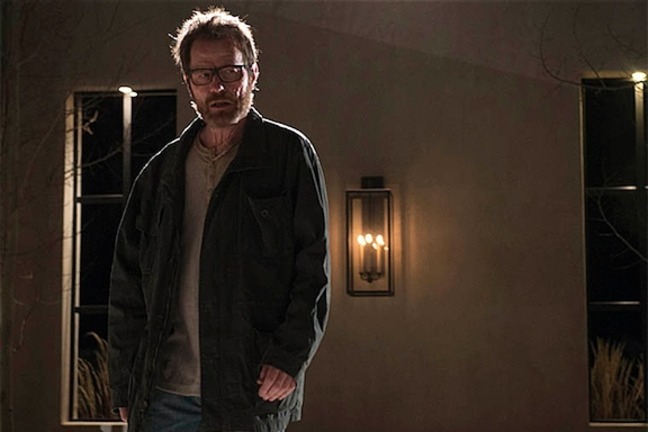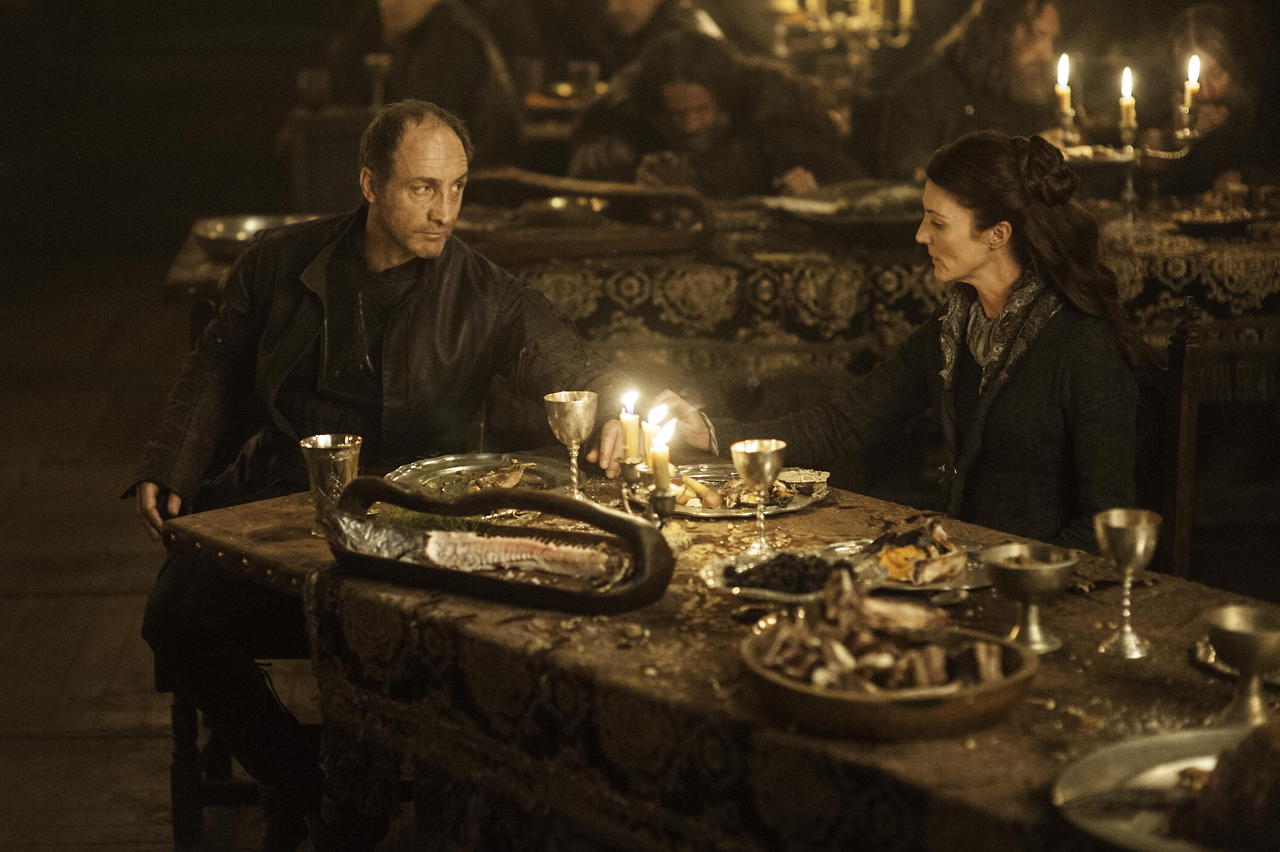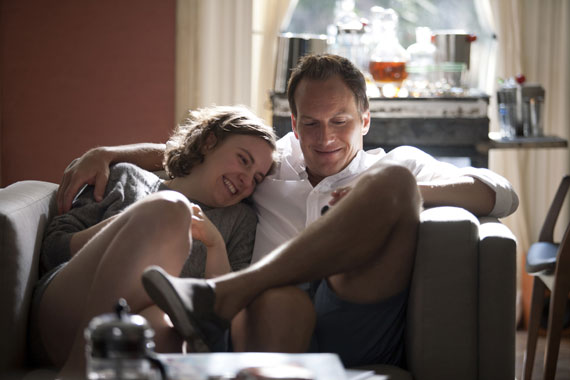Game of Thrones 4x02 "The Lion and the Rose"
People always talk about the past as being the “good old days”. It’s always a delusion, some utopian fantasy that people devise to being them solace during difficult times. If it used to be so grand back in “those days”, then hell, maybe it’ll someday be like that again. Maybe things can go back to normal. But the reality of the matter is that there were no “good old days”. There was no utopia that we can return to; the struggles and conflict within day-to-day life will always be there until the day that we die.I say this because last week in “Two Swords” we saw discussion on the façade of peace, of people trying to return to some semblance of how things were before everything went straight to hell. And we saw the delusion that people forced themselves into in order to keep from realizing that things will never be the same. And even if we think back to the days in Winterfell at the beginning of Season 1, the days where the Stark family was whole, there was still chaos. White Walkers in the north. Violence brewing across the Narrow Sea. Assassination in the south. Every governmental system has its flaws, which threaten to tear it apart. And Martin makes sure to let us know that history has proven just how chaotic monarchies are.When it comes to kings, there are no real qualifications. Hereditary monarchies like those in the middle ages mean that you don’t have to be a good person to be a king. You don’t have to be a smart person either. And Joffrey, more than any other character in Game of Thrones, is stupid and wretched. He’s a sadist, inflicting pain just to get a laugh, mocking just because he can. A sadist with power simply unleashes the potential to inflict pain. But those that have been in power for a while (Cersei, Tywin) understand how kings like Joffrey aren’t sustainable. You can be an asshole and a king (hell, you have to be an asshole sometimes to be a good leader), but there has to be a balance. There has to be some feasible avenue for sustainability, otherwise a kingdom will devolve into the kind of chaos that sparked the Mad King incident.As such, Joffrey had to go. He was never going to be a sustainable leader. He mocked his own family members for the hell of it. He cared nothing for tactics, for alliances, for anything other than his own amusement. He experienced a certain level of insanity that really was only comparable to the Mad King. After the Red Wedding, where the tables were so heavily tilted in the Lannister favor, it’s nice to see the narrative not only shift the other way, but that Game of Thrones is operating on a realistic level. Idealism like Robb’s isn’t feasible, but neither is insane sadism like Joffrey.This episode serves up a large dose of insanity, whether it be Ramsay tormenting Theon/Reek for his own amusement or Melisandre spouting off about the Lord of Light again. But there’s a major difference between Ramsay/Melisandre and Joffrey. Both Ramsay and Melisandre are calculated in their insanity. Melisandre has a religious system built around that insanity. Ramsay has distorted Theon/Reek’s reality to the point where his insanity is a feasible future for their relationship. Joffrey, however, doesn’t have that kind of foresight. He doesn’t care about making his brand of insanity conducive to any sort of future. And it’s inevitable that anybody in power who cannot provide that future will be killed.And yet, the question remains: Who is at fault for Joffrey’s behavior? Sure, he’s a monster when left to his own devices, but look at the two people pulling at his strings. Margaery is able to persuade him to give the feast’s leftovers to the poorest in the city. She’s able to control him (for now), smartly using him to do some good for the city. Cersei, on the other hand, preferred that she was able to control her son, even though that control was fleeting. Joffrey maintained a sort of status quo that Cersei was comfortable with. Sure, he was an asshole, but he was also just a kid, one brought up by parents that brought out the worst in him.That wedding scene is a powerhouse of a scene, one of the greatest Game of Thrones has ever offered. Within Game of Thrones, we rarely stay with a group of characters for any more than eight minutes, so to have twenty minutes allocated for one big scene was quite the treat. But what makes the scene so fantastic is just how every one of its components is so effective and efficient, either in creating tension or in crafting the mystery that is introduced at the end of the episode. Careful attention is paid to Oberyn and his anger towards the Lannisters, as well as Tyrion’s feud with Joffrey, but Joffrey’s actions illustrate how just about anybody would have wanted to kill him. Even Tywin, when Joffrey was dying, never really looked like he cared. All of these little feuds on the side are enhanced through the understanding that the last Game of Thrones wedding was one that ended in violence. And even though “The Lion and the Rose” was only the second episode, it was apparent that something big was going to happen at the end. The atypical length of the scene was enough to underline its importance.But the real genius behind the scene was just how the show’s visual cues teased the one who poisoned Joffrey. As a book reader, I already knew it was coming and who did it, but to see that person illustrated through a line of dialogue here and a well-framed shot there was amazing. It also illustrated who didn’t poison Joffrey. Tyrion’s utterly bemused look showed how he was just as confused as everybody else. But, of course, Joffrey pointing at Tyrion was just one final indignity. It was the last ounce of power Joffrey had, and he uses it to blame somebody else. Even when the “bad guy” is killed, it’s never entirely happy. And it very well shouldn’t be. Even though Joffrey is now dead, it would be too easy and simplistic to revel in his death. On-screen, Joffrey’s death is absolutely horrifying, and the graphic nature in which this boy suffocates to death bleeds all enjoyment out of watching him die. I’m glad that Martin wrote this one, because that ambiguity was one of the highlights of A Storm of Swords, and I was ecstatic to see it brought up in this episode.While the other scenes here work to provide a different take on the episode’s thematic concept, there’s still a sense that some of these storylines are stalling for time. Stannis is STILL licking his wounds after the events of Season 2. Bran is STILL moving north towards some destination. Theon is STILL being tormented by Ramsay. As well as they are utilized, the scenes are still being adapted from source material that gives some characters a ton of material and others nearly nothing. Even if Bran’s story were to pay off seasons down the line, the sheer scope of the series makes it difficult to care about his story now. We’re getting to the point in the book series where plot points begin to move forward at a sluggish pace, and even though the King’s Landing segments of A Storm of Swords scream by at a breakneck pace, the others in the episode are running on empty. “The Lion in the Rose” may contain instances of brilliance, but it brings about a certain nervousness for what comes next. In killing off Joffrey, Game of Thrones loses its center, the one place that people could look to rally around somebody that they hate. This lack of center is certainly good in illustrating the chaos of a kingdom under a monarchial rule, but it’s still unnerving in that we’re losing more and more storylines that we’re invested in. Stories like Ramsay searching for Bran and Rickon or Stannis burning more infidels don’t have the punch of the King’s Landing story simply because they seemed further quarantined, like their events don’t affect anything outside of them. So, as we move forward and continue losing more and more people to Martin’s source material, one wonders what the hell is going to be left when all is said and done. I guess that’s the point.Final Thoughts: Even though a couple of lackluster scenes bring it down, “The Lion and the Rose” contains one of the finest sequences in Game of Thrones history.Grade: A-
Recent Reviews

Breaking Bad "Felina"

Game of Thrones "The Rains of Castamere"

Girls "One Man's Trash"